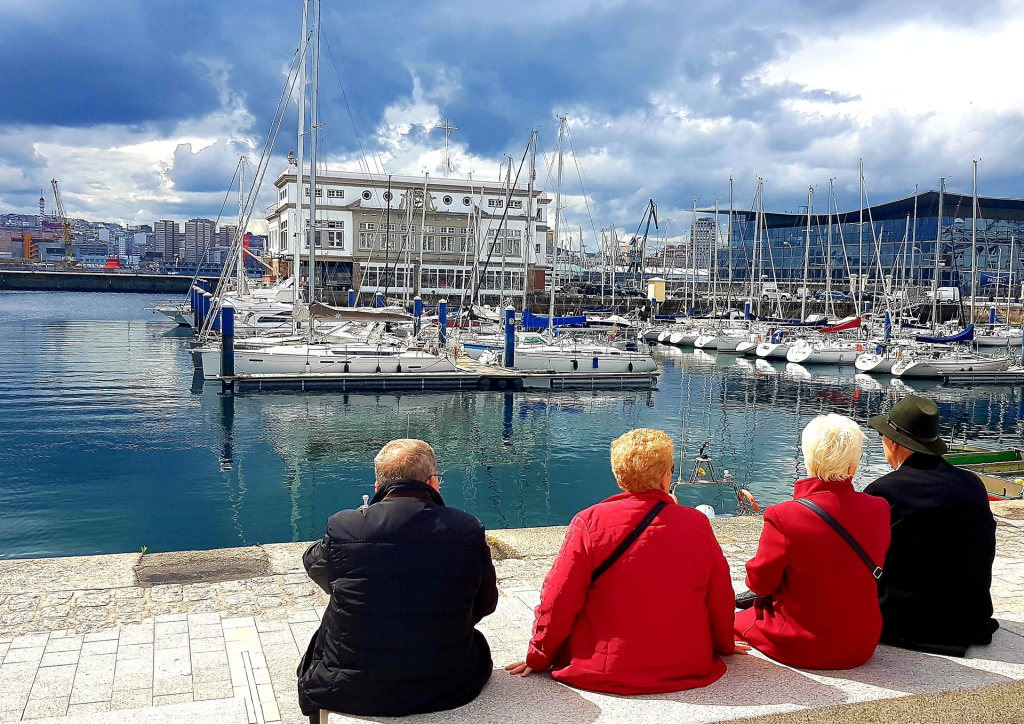Unlocking Affordable Getaways: Property Ownership in Cape Town

THURSDAY THREADS: Cape Town’s Property Tapestry
Investing in a holiday property is a luxury many cannot afford, and saving for this dream may never become a reality. However, owning a holiday property in Cape Town need not remain a distant goal. Real estate specialist Sandy Walsh outlines two alternative holiday home ownership options that may be more achievable.
Holidaymakers visiting popular resorts will always pay a premium for accommodation, whether a hotel, guest house or Airbnb. Yet according to Sandy Walsh, General Manager of the Property.CoZa’s Prestige franchise office in Mouille Point says owning part of a holiday home in a popular area like the Atlantic Seaboard could be a more affordable option.
“Many avid holidaymakers may opt for Timeshare and Holiday Club accommodation, but both these options expire at a specific date, and high levies and usage limitations may not be appealing,” Walsh points out.
The good news is that there are at least two co-ownership options worth considering: via a homeowner syndicate or fractional ownership.
HOMEOWNER SYNDICATES – Own a Portion, Share the Pleasure
Walsh comments that homeowner syndicates present a fresh perspective on conventional holiday property ownership as it’s a more affordable way to own a property slice and share the joy. “A homeowner syndicate entails investing in a holiday property with a group of people you know and trust, enabling you to share your property asset’s experience, income, and expenditure equally,” she explains.
A significant benefit of a homeowner syndicate is that you share the responsibility; however, as with any shared venture, careful consideration of bookings, effective property maintenance, and upkeep management is key.
“The downsides of this type of property co-ownership could include dealing with usage disagreements, navigating booking dates during high season periods, and identifying who will administer and manage the bookings, costs and security.”
However, homeowner syndicates offer a unique solution for those seeking a collective and economical way to own a holiday home.

FRACTIONAL OWNERSHIP – Clever Investments, Joint Responsibilities
Fractional ownership, described by Private Property as “the joint ownership of any asset by more than one individual or legal entity”, offers an enticing blend of opulence and affordability. It’s a structured syndication method in which several shareholders own a particular company’s shares. In turn, the company owns an asset (in this case, a property).
Fractional ownership is sometimes called “timeshare on steroids,” Walsh says that, unlike traditional timeshares, fractional ownership provides an actual stake in the property.
As a structured syndication method, shareholders in fractional ownership enjoy security, complete maintenance, and affordability. “With a timeshare, you don’t own the asset, as you’re only entitled to enjoy the use of the property for a specific period, usually a few weeks per year,” comments Walsh.
Fractional ownership is more flexible because the innovative concept offers 13 shares, with a maximum of 13 shareholders, each allowing two weeks’ usage every six months.
“Shareholders may purchase more than one share, but in certain cases, no individual shareholder may own more than 25% of the shares,” explains Walsh.
Aside from being a more accessible way to own your piece of holiday paradise in Cape Town, she says fractional ownership does not expire.
Moreover, any increase in the property’s value directly accrues to the shareholders, differentiating it from traditional timeshares, according to Private Property.
A lesser-known fact about fractional ownership is the potential appreciation of the shares, depending on the location and type of property.
“In May 2023, our Property.CoZa Prestige office sold a specific usage slot for R330 000, a share for the exclusive use of a furnished two-bedroom (4 sleepers) two-bathroom apartment in the sought-after V&A Waterfront.”
Walsh says this share is transferable and gives the owner two weeks of annual usage in perpetuity. “With the only expense being a monthly levy of R1,700, this ownership model offers a shrewd and cost-effective entry into the coveted Atlantic Seaboard property market,” she remarks.
Several fractional ownership properties exist in high-security upmarket developments in Cape Town and the Western Cape. These include the renowned Victoria and Albert Waterfront (V&A) in the Atlantic Seaboard, Ellerman House Villas in Bantry Bay, Delaire Graff Estate in Stellenbosch, and Pezula Private Residence Club in Knysna.
SEASON SENSE AND MANAGEMENT WISE
Before buying part of a holiday property in Cape Town and the Western Cape, Walsh advises potential co-ownership investors to consider how seasons affect purchase prices.
“House prices are typically higher during the peak tourism season in the summer months (from October to April), so consider buying in winter (from June to September) to take advantage of price negotiation.”
Cape Town, specifically the Atlantic Seaboard, is a vibrant destination for most of the year, but seasonal fluctuations are a reality.
“The typography of the Mother City means cold, wet winters, although this does not occur every day,” says Walsh.
“Remember, if you’re buying a fractional ownership slot, establish the date/s of your slot. The peak summer season from October to April will undoubtedly affect the price of a slot, especially during the school, Easter and Christmas holidays,” she advises.
With fractional ownership properties, hospitality specialists generally handle all property management aspects, including the vital function of overseeing the booking schedules of the co-owners,” she explains. “These specialists can also manage the rental pool for owners at a reasonable commission, which is helpful as the property can provide income during unutilised weeks,” remarks Walsh.
Having witnessed many changes in her more than 25 years in the real estate industry, Walsh is upbeat about how traditional methods are yielding innovative alternatives in Cape Town’s holiday property ownership. “They are redefining how people can own a piece of Cape Town’s best to invest in luxury and create lifelong holiday memories without breaking the bank,” she remarks.
So, whether exploring homeowner syndicates as a cost-effective, community-driven approach to holiday home ownership or investing in an actual stake in a premium fractional ownership property, Walsh says these clever property ownership changes are redefining how people can invest in vacation property luxury.




